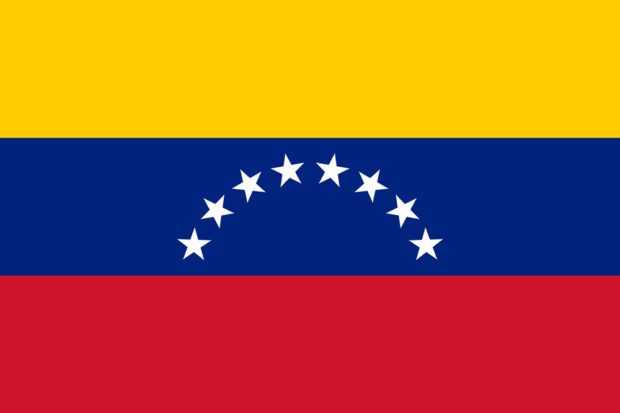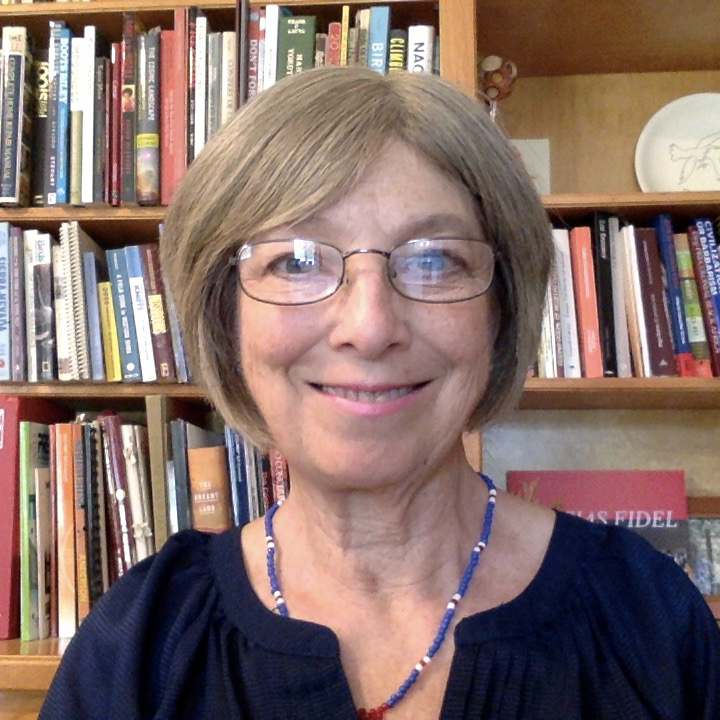
On Sept. 15, the United States announced that another boat in international waters thousands of miles from the U.S. coast had been bombed by U.S. forces, killing three people.
Daphne Eviatar, director of Amnesty International’s Security with Human Rights initiative, said of the Sept. 15 attack, “This is an extrajudicial execution, which is murder…There is no legal justification for this military strike. The U.S. must be held accountable.”
Two weeks before, the United States had bombed another boat in the region, killing 11 people. On Sept. 12, the U.S. vessel USS Jason Dunham (DDG-109), a destroyer equipped with cruise missiles, sent 18 men armed with heavy weapons to detain and occupy the Venezuelan fishing vessel Carmen Rosa that had been sailing 48 nautical miles northeast of La Blanquilla Island, well within Venezuela’s Exclusive Economic Zone. The nine fishermen were terrorized and detained for eight hours.
The United States has deployed eight warships, a nuclear submarine and 10 F-35 fighter jets in the Caribbean—all to threaten Venezuela. The excuse is that the United States is trying to combat “drug trafficking.”
However, UN data indicate that Venezuela is not a nation that engages in drug trafficking. Former executive director of the UN Office on Drugs and Crime (UNODC) Pino Arlacchi said that when he headed the agency, “I frequently travelled to Colombia, Bolivia, Peru and Brazil, but never to Venezuela. There was simply no need.
“The Venezuelan government’s collaboration in the fight against drug-trafficking was among the best in South America, rivaled only by Cuba’s impeccable record. This makes Trump’s narrative of a ‘narco-state’ in Venezuela sound like geopolitically motivated slander.”
The 2025 UNODC report only briefly mentions Venezuela, stating that a small amount of Colombian drug production passes through the country en route to the United States and Europe.
According to the United Nations, Venezuela has consolidated its status as a territory free from the cultivation of coca leaves, cannabis and similar crops, as well as from the presence of international criminal cartels.
“This document merely confirms the findings of the previous 30 annual reports, which did not address Venezuelan drug trafficking because it does not exist,” states Arlacchi.
As it is obvious to any person who does even minimal fact-checking that the Trump regime’s pretexts are lies, then what is the reality behind the pretexts?
Venezuela is not a drug trafficking country and the “Cartel of the Suns” is a U.S.-invented myth to justify sanctions, like the alleged Weapons of Mass Destruction in Iraq in 2003. Tren de Aragua is a small prison gang, not a state-sponsored threat. Maduro is not a dictator or the head of a (nonexistent) cartel. He’s the elected president of a country that holds free and fair elections.
This country provides free healthcare and education and has eliminated homelessness.
The United States is trying to regain control of Venezuela’s resources, especially its vast oil reserves. This has been a U.S. goal ever since Hugo Chávez was elected president in 1998, and the Bolivarian Revolution—a term referring to the ideals of independence leader Simón Bolivar, not the country of Bolivia—began to build popular democracy, economic independence, equitable distribution of wealth and an end to corruption.
In 2015, the U.S. government placed economic and political sanctions on Venezuela with the goal of wrecking the economy. These were effective in causing suffering and emigration. Venezuela has worked hard to recover.
In addition, Trump needs a war now as a distraction from his Epstein involvement and as an excuse for repression. The killing of a right-wing media figure will function only briefly as a media distraction. Being a war president—now that has emotional appeal for this narcissistic sociopath as well as enormous political utility.
What is missing from these accounts?
It is the point of view of the people of Venezuela. The media reports the Trump-Rubio lies, and the alternative media reports the point of view of those of us who oppose U.S. imperialist aggression abroad and fascist repression at home.
What is it like to be in a country threatened with war and invasion by the biggest military empire in history? What does it feel like to have eight destroyers carrying over a thousand missiles, and a nuclear submarine offshore, prepared for an invasion, an occupation, bombings?
The people of Venezuela are firmly united in favor of peace and in defense of the country’s sovereignty, states Maduro, and undoubtedly this is true; it is the natural response of people faced with foreign invasion. People are signing up for militia training in huge numbers. “We’re going to make them respect our country,” say the social media posts.
Giselle P., a biologist-ecologist in Caracas, Venezuela, talked about “waiting for the invasion” and how the Venezuelan people have developed their strength to resist in a recent interview. (Her English is excellent; this is not a translation.)
“It’s been 25 years since the revolution. We’ve seen every way to take us down.”
Commenting on the recent U.S. actions, she asked, “How can you just go and blow people up?…You cannot bring nuclear vessels into a non-nuclear zone…The U.S. has always ignored international law in Latin America; we can take lessons from that, from history.
“I was listening to a Cuban song called ‘Waiting for the Invasion,’ and it’s a calm song, very Cuban; it gives me strength.” (“Esperando la Invasión,” a 1961 song by Carlos Puebla)
“I find strength in many things,” she says. “We’ve seen many things, overcome many things. Trump has a certain cockiness, and that is going to be expressed in the way that they attack us.
“I think they’re going to mess around and find out. They think we’re this small country, incompetent.
“But you don’t carry out a socialist revolution in a country that is close to the U.S., with so much oil under its feet, by being silly, incompetent, incapable. We have done this through strategy, we did it through competence, through dedication, and this is what we still have.
“We want to continue with our revolution. We want to continue having sovereignty over our own oil, and this is what’s going to happen. There are over four million people prepared to defend in people’s militias. We’ve been resisting for 25 years; we’ve been through a lot, and therefore we are very organized.
“The militias are over 16 years old, and now more people are enlisting. The people who have resisted the economic sanctions that have been very rough on our systems—our electrical systems, technological systems, our food systems, our everything—what doesn’t kill you makes you stronger.
“We’ve become self-reliant for many things in our food system that we didn’t used to rely on ourselves for. The resistance is not just now; it has been built up and now we’re seeing more people enlisting in these militias.
“Now, what does this militia actually mean? What it means—it’s a group of citizens willing to follow military orders if needed. It’s an attempt to create a people’s war, so not only the military will respond. That’s the objective: The people who have been in Venezuela resisting are willing to continue to do so under whatever circumstances come our way.
“Something that happened to me this morning: my little girl—she’s eight—she was listening to music from different parts of the world, Chinese music, music from Egypt, whatever, then she came back to Venezuelan traditional music. It struck me that music from each country sounds different, and you don’t have to be an expert to perceive that and to be warmed within, when you hear what rings true to you.
“When I heard that music, I felt: this is what they’re attacking, this is what the United States is trying to change, to denigrate, to disappear. And that sense of ‘This is me,’ this is what moves me, what moves my daughter…
“That makes you want to defend what is yours, and you were asking me whether I thought the militias could really have the strength that it requires and I think that this feeling of wanting to preserve what is yours is what gives it strength.
“And the organization that has been necessary to survive under the economic siege that the U.S. has brought upon us in Venezuela is what gives us the tactical strength as well so that I think that on our past, it’s just love for what you are, for what you are trying to build, for the dream that you are trying to build, and just the experience that we have.
“As Chávez said, we’re a peaceful country, we are a peaceful revolution, but we are not unarmed. When we went out of our country to participate in wars it was for the independence of Latin America, and that is what Venezuela is, was and continues to be.”

